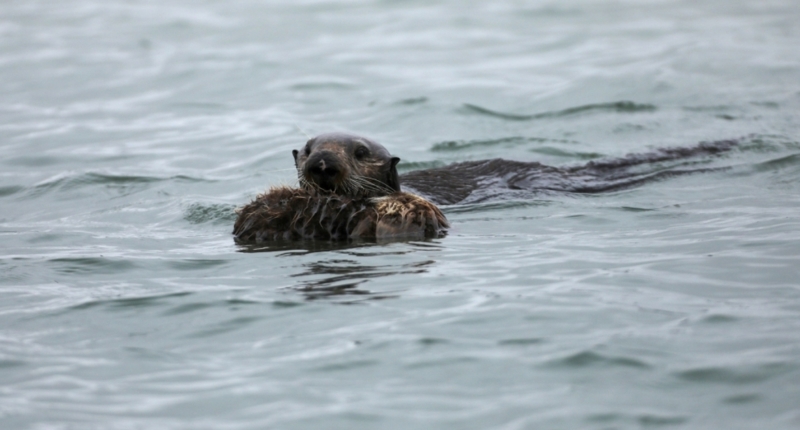Four sea otters have died in California from a rare strain of the Toxoplasma gondii parasite that could pose a risk to human health. This strain had never been reported in any aquatic animal or coastal California before. The sea otters had an “unusual and severe” condition called steatitis or inflammation of body fat, and were stranded between 2020 to 2022. While toxoplasmosis is common in sea otters and is known to be deadly, this strain of T. gondii was able to rapidly kill apparently healthy adult otters. Although no cases of infection have been reported in humans yet, researchers called the otters “important sentinels” of the circulating strain. They advise people to take extra precautions if they observe inflamed systemic fat deposits in sea otters or other marine wildlife. Pet owners should keep cats inside, change the litter box every day, and wash their hands well, as cat feces can contain high levels of the Toxoplasma gondii parasite. Further research is needed to determine the spread of the rare strain of T. gondii in otters and whether other aquatic wildlife are infected.
Four California Sea Otters Died from Rare Strain of Toxoplasma Gondii that Could Pose Risk to Humans
A rare strain of the Toxoplasma gondii parasite has killed four sea otters in California, according to a study published in the journal Frontiers in Marine Science. Scientists have called this finding a “complete surprise” since this strain had never been reported in any aquatic animal or in coastal California. The researchers, led by experts from the California Department of Fish and Wildlife and the University of California, Davis, discovered that this strain could pose a risk to human health.
The four sea otters that died from this parasite had an “unusual and severe” condition called steatitis or inflammation of body fat, and they were stranded between 2020 to 2022. While toxoplasmosis is common in sea otters and is known to be deadly, this strain of T. gondii was able to rapidly kill apparently healthy adult otters.
Melissa Miller, a California Department of Fish and Wildlife researcher and author of the paper, warned that this parasite could infect any warm-blooded animal, including humans, which could lead to disease in animals and humans that share the same environment or food resources, such as mussels, clams, oysters, and crabs that are consumed raw or undercooked.
No cases of infection have been reported in humans yet, but researchers have called sea otters “important sentinels” of the circulating strain. They advise people to take extra precautions if they observe inflamed systemic fat deposits in sea otters or other marine wildlife.
Most people infected with T. gondii have no symptoms and aren’t aware of their infection. However, severe toxoplasmosis can cause damage to the brain, eyes, and other organs. It can be transmitted from mother to fetus during pregnancy and can lead to significant health problems after birth. People at higher risk of severe infection are infants born to mothers who were infected during or shortly before pregnancy and people with weakened immune systems.
The US Centers for Disease Control and Prevention (CDC) recommends typical food safety practices such as cooking foods to a high internal temperature, rinsing fruits and vegetables, and washing utensils to prevent toxoplasmosis infection.
In conclusion, this discovery highlights the need for increased vigilance in monitoring the spread of T. gondii in aquatic environments and for people to take precautions to prevent infection.
CDC Advises Pet Owners to Keep Cats Inside and Change Litter Box Daily to Prevent Toxoplasmosis
According to the CDC, cat feces can contain high levels of the Toxoplasma gondii parasite. To prevent infection, pet owners should keep cats inside, change the litter box every day, and wash their hands well.
In the study, the researchers noted that further investigation is needed to determine the spread of the rare strain of T. gondii in otters and whether other aquatic wildlife are infected.
Don’t miss interesting posts on Famousbio
